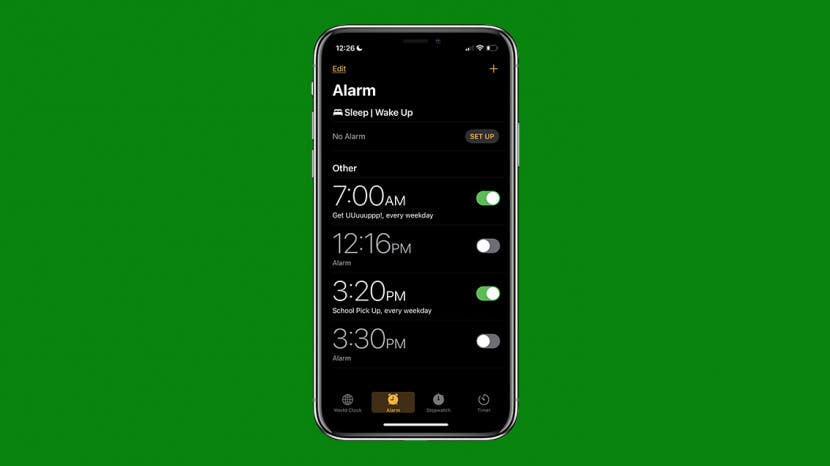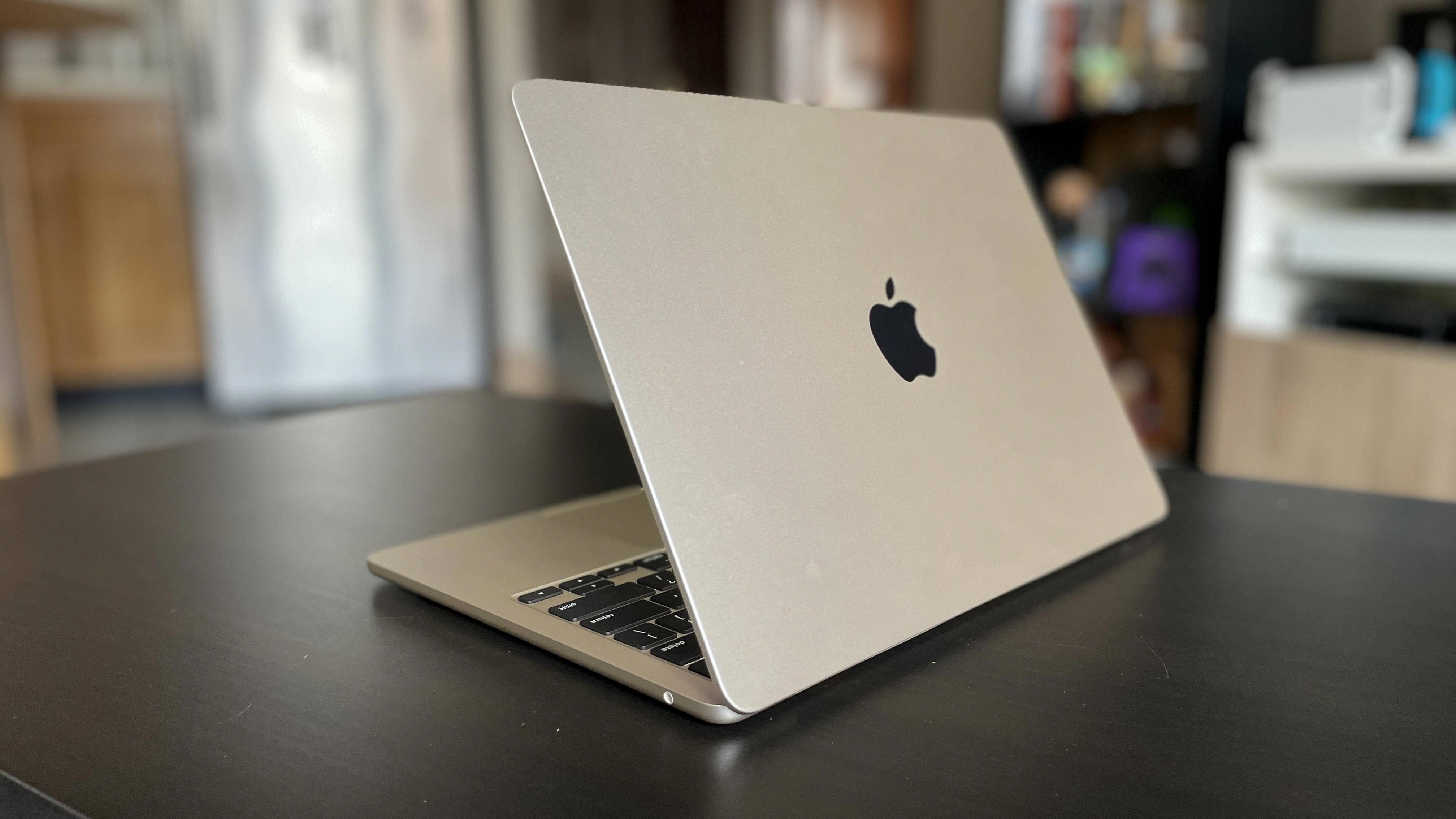The iPhone 13 is a powerful device that offers a wide range of features and functionalities. One of the most important functions of a smartphone is its alarm clock, which helps us wake up on time and stay organized throughout the day. However, some users have reported issues with their iPhone 13 alarms not working properly. In this article, we will explore some possible solutions to this problem.
Firstly, it is important to check the alarm volume on your iPhone 13. By default, the alarm sounds are controlled in the Settings app, not with the volume buttons on the side of the device. To ensure that your alarm is loud enough to wake you up, start by opening the Settings app and tapping on “Sounds & Haptics.” Here, you will find a toggle next to an option that reads “Silence alarms when system sound is off.” Make sure this toggle is switched off so that your alarms will still ring even if your phone is on mute or vibrate.
If your iPhone 13 is not vibrating when the alarm goes off, you may need to enable the system haptics feature. To do this, go to the Settings app and tap on “Sounds & Haptics.” Scroll down and select “Enable System Haptics.” This will ensure that your phone vibrates when necessary, including during alarm notifications.
Another important setting to check is the vibration feature. In the same “Sounds & Haptics” menu, tap on “Vibration.” Here, you can select a vibration pattern for your alarms. Make sure that a vibration pattern is selected, as this can help alert you in case the sound is not enough to wake you up.
In addition to these settings, it is also worth checking the overall sound settings on your iPhone 13. Go back to the main page of the Settings app and tap on “Sound.” Here, you can adjust the volume level for various audio features on your device. Make sure that the volume for the alarm is set high enough to wake you up. You can also test the volume by using the volume buttons on the side of your iPhone 13 to adjust the alarm volume.
Once you have checked and adjusted these settings, make sure to save your alarm time and settings. To do this, go back to the alarm page and tap on “Save.” This will ensure that your alarm is set up correctly and will ring at the designated time.
If you are experiencing issues with your iPhone 13 alarm not working, it is important to check the settings related to alarm volume, vibration, and system haptics. By ensuring that these settings are properly configured, you can increase the chances of your alarm waking you up on time. Remember to save your alarm settings and test the volume to ensure that everything is working as expected.

Why Do Your iPhone Alarms Sometimes Not Go Off?
There could be several reasons why your iPhone alarms sometimes do not go off. Here are some possible explanations:
1. Alarm volume: As mentioned earlier, alarm sounds are controlled separately from the volume buttons on the side of your iPhone. Make sure that the alarm volume is set high enough in the Settings app. You can do this by going to the Settings app, tapping on Sounds & Haptics, and adjusting the alarm volume to an audible level.
2. Do Not Disturb mode: If your iPhone is set to Do Not Disturb mode, it will silence all incoming calls, notifications, and alarms. To check if this is the issue, swipe up from the bottom of your iPhone screen to access the Control Center. If the crescent moon icon is highlighted, Do Not Disturb mode is enabled. Tap the icon to turn it off.
3. Bedtime mode: If you have Bedtime mode enabled in the Clock app, your alarms will be automatically silenced during your designated sleep hours. To check if this is the case, open the Clock app and tap on the Bedtime tab. Adjust your sleep schedule or turn off Bedtime mode if necessary.
4. Incorrect alarm settings: Double-check the settings for your alarms to ensure that they are set up correctly. Make sure that the alarm time, repeat schedule, and sound are all configured properly. Sometimes, accidentally setting the alarm for the wrong time or not repeating it for the desired days can lead to alarms not going off.
5. Software issues: In some cases, software glitches or bugs could be causing problems with your alarms. Ensure that your iPhone is running on the latest iOS version by going to the Settings app, tapping on General, and selecting Software Update. If an update is available, install it to see if it resolves the issue.
6. Background app refresh: If you have disabled background app refresh for the Clock app, it may prevent alarms from going off when your iPhone is locked or asleep. To check this, go to the Settings app, tap on General, select Background App Refresh, and make sure that the toggle for the Clock app is enabled.
If you have tried all of the above steps and your iPhone alarms still do not go off reliably, you may want to consider contacting Apple Support for further assistance.
Why Isn’t Your Phone Alarm Going Off?
There could be several reasons why your phone alarm is not going off. Here are some possible explanations:
1. Silent mode or Do Not Disturb mode: Check if your phone is in silent or Do Not Disturb mode. In these modes, all notifications and alarms are muted. Adjust the settings to allow alarms to ring even when your phone is on mute or vibrate.
2. Volume settings: Make sure the volume on your phone is turned up. Sometimes, alarms may not play if the volume is set too low. Check both the ringer volume and media volume settings to ensure they are at an audible level.
3. Alarm settings: Double-check your alarm settings to ensure that the alarm is set correctly. Verify the time, repeat frequency, and sound chosen for the alarm. Also, confirm that the alarm is enabled or turned on.
4. Battery saver mode: If your phone is in battery saver mode, it may restrict certain functions, including alarms. Disable battery saver mode or add an exception for alarms in the settings.
5. Third-party apps or customizations: If you have installed any third-party alarm apps or made customizations to your device’s software, they may interfere with the default alarm function. Try disabling or uninstalling these apps to see if it resolves the issue.
6. Software updates or bugs: Sometimes, software updates can cause conflicts or introduce bugs that affect alarm functionality. Ensure that your phone’s operating system and alarm app are up to date. If the issue persists, contact the phone manufacturer or software developer for further assistance.
7. Hardware issues: In rare cases, there may be hardware problems preventing the alarm from working correctly. If none of the above solutions work, it might be worth visiting a service center or contacting customer support to diagnose any potential hardware issues.
Remember to check each of these possibilities systematically to troubleshoot the problem with your phone alarm not going off.
Why is Your iPhone Alarm Not Vibrating?
There could be several reasons why your iPhone alarm is not vibrating. Here are some possible explanations:
1. System Haptics Disabled: First, check if System Haptics is enabled on your iPhone. System Haptics allow your device to provide subtle vibrations for different system functions, including alarms. To enable System Haptics, go to the Settings app, tap on Sounds & Haptics, and make sure the “Vibrate on Ring” and “Vibrate on Silent” options are toggled on.
2. Vibration Disabled: Additionally, ensure that the Vibration setting is turned on for your alarm. To do this, go to the Clock app, tap on the Alarm tab, and select the desired alarm. On the alarm details page, tap on “Sound” and then choose a vibration pattern from the list. If “None” is selected, your alarm will not vibrate. Select a different vibration pattern to enable the vibration for your alarm.
3. Play Haptics Disabled: Another setting to check is the Play Haptics option. This setting allows your iPhone to play haptic feedback when interacting with certain elements, including alarms. To enable Play Haptics, go to the Settings app, tap on Sounds & Haptics, and ensure that the “Play Haptics” option is turned on.
4. Hardware Issue: If you have checked all the settings mentioned above and your iPhone still doesn’t vibrate during alarms, there may be a hardware issue. In this case, you should consider contacting Apple Support or visiting an authorized service center to have your iPhone examined and repaired if necessary.
Please note that these troubleshooting steps are based on general settings and may vary depending on your iPhone model and iOS version.
Conclusion
If you’re experiencing issues with your iPhone 13 alarm not working, there are several possible solutions to consider. First, ensure that your alarm volume is set high enough in the Settings app. Check that the “Silence alarms when system sound is off” option is toggled off, allowing alarms to ring even when your phone is on mute or vibrate.
If your iPhone doesn’t vibrate at all, enable System Haptics, Vibration, and Play Haptics in the Settings app. This will ensure that your phone can provide haptic feedback and vibrations for alarms. Remember to select a vibration pattern and tap Save to confirm your alarm time and settings.
By following these steps, you should be able to troubleshoot and resolve any issues with your iPhone 13 alarm not working. It’s important to double-check these settings to ensure that you won’t miss any important alarms in the future.








